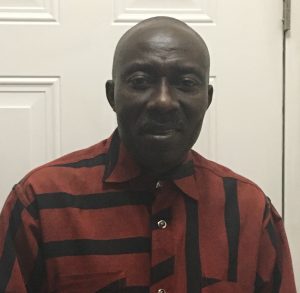At this y ear’s GSA Business Meeting, convened online following the African Studies Association annual meeting (also held virtually, for the first time), members elected Professor Kwasi Ampene, an ethnomusicologist at University of Michigan, as the new President of GSA. Read Professor Ampene’s short statement below and his bio here.
ear’s GSA Business Meeting, convened online following the African Studies Association annual meeting (also held virtually, for the first time), members elected Professor Kwasi Ampene, an ethnomusicologist at University of Michigan, as the new President of GSA. Read Professor Ampene’s short statement below and his bio here.
“It is with a deep sense of humility and honor that I begin my service as the new president of the Ghana Studies Association in these difficult times and our fight with the COVID-19 pandemic and its implications for academic institutions and our profession. For me, it is a terrific opportunity to continue the extraordinary work of my predecessors particularly, the immediate past President, Nana Akua Anyidoho, and our current officers whose dedication and service contribute immensely to the overall success of the GSA. I bring to this position, my leadership and service experience at the University of Michigan, the University of Colorado-Boulder, my leadership in international professional organizations, and my transdisciplinary collaborations with colleagues and students in Ghanaian universities. The GSA has accomplished a great deal since its humble beginnings in 1988 but you will agree with me that we still have a lot of challenges ahead of us. Our opposition to the proposed Ghana Public University Bill is clear. If allowed to pass, such a bill will seriously undermine academic freedom, innovation, the integrity of research and publications, and course delivery. Despite ongoing challenges, the future is bright and full of opportunities for the GSA. I look forward to working with the Advisory Board to develop strategic plans and initiatives, to obtain sustainable funding for the journal, plan our upcoming triennial conference in Tamale, increase our membership base in tertiary institutions in Ghana, set up a mentor program for junior faculty, and redesign our website. I am optimistic that we shall succeed because I know I can count on our collective participation and critical contributions.”
Congratulations, Professor Ampene!